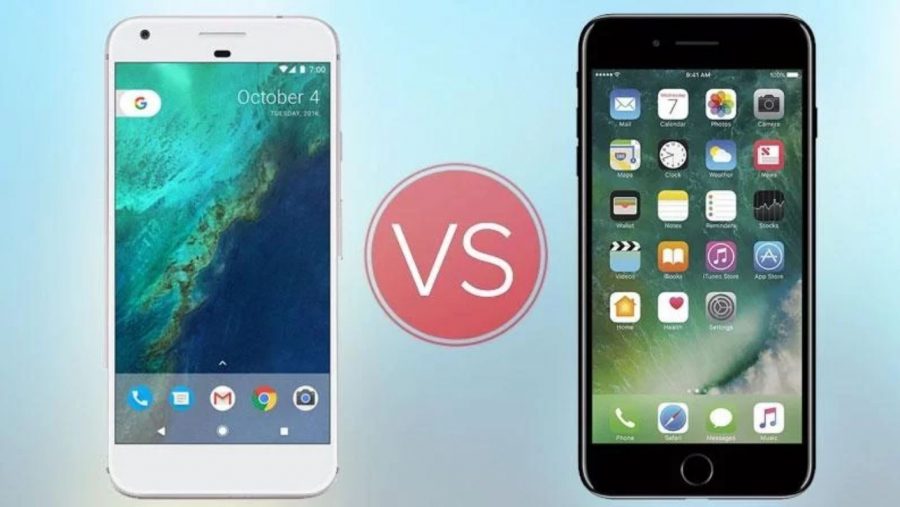highlights Deems the Smartphone Debate World’s Single Most Pressing Issue
America is split into two bitter halves. So much for “one nation, under God, indivisible.” Both factions are constantly at war with each other in comments sections, online forums and frequent public shouting matches that erupt without warning. The stark dichotomy in the nation is only going to be able to heal once both sides learn to come together for the good of America, putting our petty differences aside. After all, aren’t we all fighting for the same thing, just with different ideas about how to achieve it?
I am, of course, talking about smartphones. Sure, the divide between progressives and conservatives has been widening in recent years, and President Trump’s tweets do very little to extinguish the flames. But the arguments between iPhone users and Android patrons are truly the fuel behind a dangerous national debate that threatens to end our democracy. Of course, asking about gun control is important, only further proven by the Parkland school shootings that took place less than a year ago. Doubtless, abortion should be a topic examined in extreme depth, especially seeing as how the questions of when life begins and what rights pregnant women have, threaten to tear apart the country’s moral fabric. And there is certainly no question, none at all, that it should be at the forefront of discussion that 31 states in this nation still allow people to be fired or denied a job simply because they are LGBTQ+. But all of these issues should be considered secondary when the smartphone debate is factored into the equation. The question of Apple’s or Samsung’s superiority is simply too pressing and urgent of an issue to be treated simply as a peripheral topic for discussion.
As evidence for the urgent nature of this debate, nothing should be more clear than the fact that the latest iPhones feature ambient light sensors, while the just-released Note 9 forgoes an ambient light sensor in favor of a geomagnetic sensor. And why consider the intricacies of immigration policy when, for example, disputes about the superiority of Samsung’s octa-core processor over Apple’s smaller hexa-core threaten to tear whole families apart?
Many have hope that the arguments will end, with both sides appearing to attempt to reach across the aisle — the Apple and Android aisles at Metro PCS, that is — finding common ground in the minimal bezels both phones boast around their respective displays. The cordiality ends, however, as soon as a belligerent Samsung supporter points out the iPhone’s camera notch cut-out at the top of the screen. iPhone junkies are no more civil, however, often resorting to ad-hominem attacks towards owners of the Galaxy S9 phone, yelling about the phone’s failure to upgrade to a dual-camera setup even as Apple modernized their own.
Perhaps the largest issue dividing the smartphone users of the nation is the resistance — and not the #resistance spurred by Trump’s election, certainly not. This type of resistance has proven to be far more contentious to that comparably tame movement, the resistance this time being that of water. Water resistance features are something Android users, and particularly Samsung owners, took pride in, often pointing out the iPhone’s shortcomings in the department of splash resistance and water damage mitigation. The iPhone now offers a rating of IP68 — yes, you read that right, a whole IP six-eight! — the same water resistance rating that the Galaxy S9 boasts. Both phones now purport to be able to withstand waters as deep as 5 feet for up to 30 minutes, galvanizing Android users who have one less thing to use against their opponents. iPhone users, however, have yet to firmly qualify these claims through a demonstration of their phones’ water resistance abilities. A test of character as true as submerging one’s smartphone for the sake of civil debate is well beyond the rowdy disagreements that have befallen this unfortunate industry.
Alas, though no one still has any idea what to do about healthcare, net neutrality has officially been repealed, and arguments over common core have yet to be resolved, one topic seems to have inspired a universal consensus among Democrats and Republicans, iPhone and Android users. Whether you are reading this story right now on an iPhone or an Android, we can all agree that Microsoft should stick to making word processors, and never, ever make a smartphone of its own, ever again.
